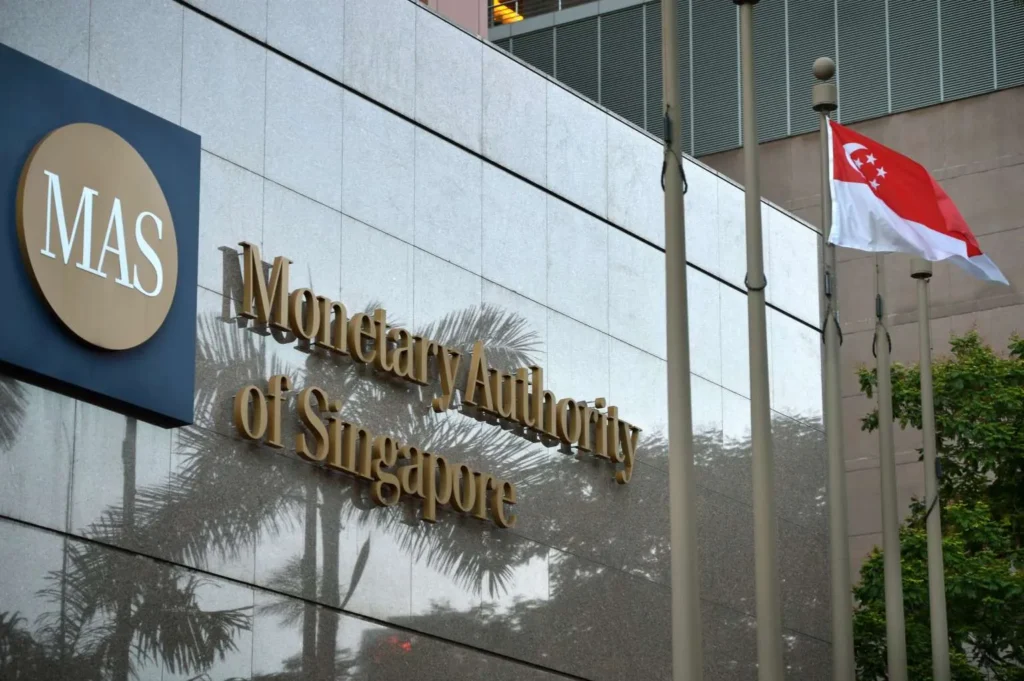If you’re building anything that touches tokens—wallets, swaps, payments—and your users are in Singapore, yes, you probably do. The crypto license Singapore requirement isn’t just for big players. Even early-stage apps fall under MAS’s radar if you’re dealing with digital assets. A few years ago, some teams might’ve flown under the radar. Not anymore. MAS is watching. And they don’t love surprises.
Honestly, it’s not about size. It’s about the activity. If you’re holding value, enabling token transfers, or handling payments, you’re expected to be licensed or at least exempt. Pretending you’re “just testing” won’t help when something goes wrong.
Is MAS Going to Grill Us?

Credit From: straitstimes
Kind of, yeah. But not in a bad way.
They’ll ask tough questions—but not to trip you up. They just want to know if you’ve really thought this through. How do you handle fraud? What happens if a user loses funds? Who’s in charge when things break? They’re not expecting perfection, but they are expecting honesty.
If your compliance answers sound like ChatGPT wrote them or a lawyer copy-pasted them, they’ll know. MAS wants answers from someone on your core team—not a consultant hiding in the background.
And if nobody on your team can talk confidently about how your system handles user protection? That’s when they start getting nervous.
We’re a Team of 4. Can We Even Apply?

Yes. Absolutely. MAS doesn’t care if you’re four people or forty. What matters is whether someone in your core team actually owns compliance.
Getting a crypto license in Singapore isn’t about having an expensive lawyer or fancy office. It’s about showing that someone—not everyone, just someone—knows the rules, understands the risks, and has the ability to implement real-world solutions.
If you’re still building and your model keeps changing every two weeks, maybe hit pause. But if you’re onboarding users or touching funds, don’t wait too long. Licensing doesn’t get easier later.
What’s the Timeline Like?

Best case? Maybe 6 months. Realistically? Expect 9–12. If you’re unprepared or unclear, it drags. MAS asks follow-up questions. You reply. Then they ask more. You revise. It’s a dance. And it’s slow on purpose.
Some teams underestimate how hands-on this gets. Submitting the forms is just the beginning. The real work is in the back-and-forth. If your docs say one thing but your product does another, MAS will spot it fast.
So the best advice? Be honest, not impressive.
Can We Operate While We Wait?

Technically, no. Unless MAS gives you a formal exemption, you shouldn’t be onboarding Singapore users. But here’s what happens: some teams quietly test, hoping to stay under the radar. Others apply and wait it out properly. Only one of those options avoids legal trouble if something breaks.
If you’re dealing with digital token services and something goes wrong before you’re licensed, MAS isn’t going to care that “you meant to apply.” So if you’re serious about staying here long-term, be careful about soft-launching too early.
What Happens After We Get the Crypto License Singapore?

You’re not done. Not even close. You’re just in a new phase now—one where you report things, respond to audits, update internal docs, and stay ready for surprise checks.
This is where a lot of teams get caught. They focus on getting approved but don’t plan for what comes next. Compliance doesn’t stop once you’re licensed. It just becomes part of your monthly ops.
If you treat it like an ongoing system—not a one-time box to check—you’ll be fine.
Crypto License Singapore: More Than Just a Stamp of Legitimacy

A crypto license in Singapore isn’t something to fear—but it’s not something to fake, either. It shows users, partners, and even banks that you’re serious. But getting it isn’t just about looking legit. It’s about being ready for the weight that comes with it.
You don’t have to be perfect. You just have to be real, prepared, and consistent.





